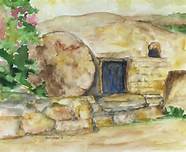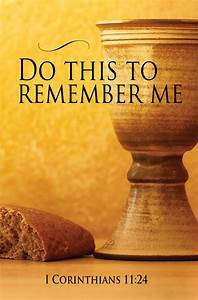“That You May Believe”

John 20:19-20, 24-31 (20:30-31) – April 24, 2022
Have you ever missed a really exciting event? Perhaps a big game or sports playoff? You had tickets, but at the last minute you got sick – or couldn’t go? And then, something really exciting happened at the game? Just recall what it felt like to miss out on something big like that! Frustrating, perhaps sad-making? Maybe you were even upset and angry? How do you think the disciple Thomas felt, missing out on the risen Jesus and His surprise first appearance?
Let’s consider today’s narrative. John tells us in his Gospel: “Now Thomas (also known as Didymus, or “the Twin”), one of the Twelve, was not with the disciples when Jesus came. 25 So the other disciples told him, “We have seen the Lord!” But Thomas said to them, “Unless I see the nail marks in his hands and put my finger where the nails were, and put my hand into his side, I will not believe.” I suspect Thomas was gently ridiculed by his friends for not believing. But, Jesus did not return to His disciples for a full week, either.
I don’t blame Thomas one bit for wanting some verifiable evidence, evidence he could see with his own eyes. I mean, this story the other disciples told him – it was a wild story, to be sure! Wouldn’t you want to see proof of such a thing for yourself before you swallowed the story, hook, line and sinker?
Thomas has gotten a bad rap for centuries. Imagine, having the nickname “Doubting Thomas” hung around your neck! Whenever anyone brings up your name, everyone always goes back to that single instance in your life. We can change that up, and look at Thomas as someone who really wonders. Someone who is curious and honest! What else can we say about Thomas?
If we remember, Thomas was the disciple who cared enough – who was passionate enough about what Jesus was saying – to interrupt Jesus! In John chapter 14, Thomas did not understand, and he stopped Jesus in the middle of a statement. Jesus welcomed Thomas’s question! And, I am certain that that was not the only time Thomas asked his Rabbi a question. Thomas was a sincere seeker, and he truly wanted to know. To understand. And, to have proof. This is a good reminder for all of us: There is no honest question God cannot handle.
It is important for everyone to keep wondering, and to continue to ask honest, sincere questions! Do you remember how your children, grandchildren, nieces or nephews went through a time in their lives when they asked constant questions? “Why is the sky blue?” “How does the grass grow?” and “What kind of music does God like?”
Do you have questions for God? Is there a burning question you wish to ask Jesus, that you very much want to have answered? Perhaps a question about the whole Easter narrative, what we have been looking at during this Easter season? Remember, God has given us good minds and sensibilities, to help us figure things out in life. Even Godly things. God wants us to use our brains and celebrate our intelligence! Just like Thomas.
In the Upper Room, it’s like Jesus said, “Thomas, I know you don’t understand what is happening, But, whatever happens, I will be with you. You’ve got me.” It isn’t necessary to have a reasoned argument in every case – but we do need a faithful, loving presence, all the time. In Jesus, we have that!
But, sometimes, people are scared to approach Jesus. Shy of pestering God. Are we straight forward? I mean, in terms of God? Thomas was! By the time Jesus raised Lazarus from the dead, the Jewish authorities very much wanted to arrest the Rabbi Jesus. Thomas actually voiced the statement that going to Jerusalem was now a reckless, even foolish act. Thomas was a realist, and was not afraid to say what he meant, even when Jesus insisted He was going to Jerusalem anyway. Thomas finished that interaction with the bold, faithful statement, “Let us go and die with him.” Whatever else we say about Thomas, we can see how brave and loyal he was.
Which brings us back to today’s reading from the Gospel of John. 26 A week later his disciples were in the house again, and Thomas was with them. Though the doors were locked, Jesus came and stood among them and said, “Peace be with you!” 27 Then he said to Thomas, “Put your finger here; see my hands. Reach out your hand and put it into my side. Stop doubting and believe.” 28 Thomas said to him, “My Lord and my God!”
Thomas needed to see for himself. He needed concrete evidence. (as some people do!) After Jesus returned and invited Thomas to place his fingers in the scars, Thomas made the most stirring confession of faith in the New Testament: “My Lord and my God!” His skepticism – his realistic questioning – was turned to certain, true belief. That was Thomas’s statement of faith! Thomas the realist. Loyal, bold, brave Thomas.
Let’s move from Thomas, who has been known as a doubter. (Even though he probably was not, as we can see from the Gospel record!) Let’s think about doubting, in general. Which of us has never, ever doubted in our lives? I suspect all of us have had a whole wilderness of doubts and uncertainties in our lives! What do we doubt? Are we ever unsure about Jesus and His claims? About Jesus and His presence right next to us? About God’s faithful love for us?
Perhaps Thomas’s confession cancels out his previous question in the Upper Room, “Lord, we do not know where you are going. How can we know the way?” Perhaps that is why John finishes chapter 20 with the words “30 Jesus performed many other signs in the presence of his disciples, which are not recorded in this book. 31 But these are written that you may believe that Jesus is the Messiah, the Son of God, and that by believing you may have life in his name.”
We can rejoice in the Resurrection! And, we can rejoice by believing in Jesus, the Resurrected One, and have life in His name – eternal life! Alleluia, amen!
(Suggestion: visit me at my other blogs: matterofprayer: A Year of Everyday Prayers. #PursuePEACE – and A Year of Being Kind . Thanks!
(Thanks to Carolyn C. Brown and her excellent article Worshiping with Children, Easter 2C, Including children in the congregation’s worship, using the Revised Common Lectionary, Carolyn C. Brown, 2016. For this sermon, I took a number of ideas from her suggestions for the Gospel reading. Wonderful commentary, too!)





